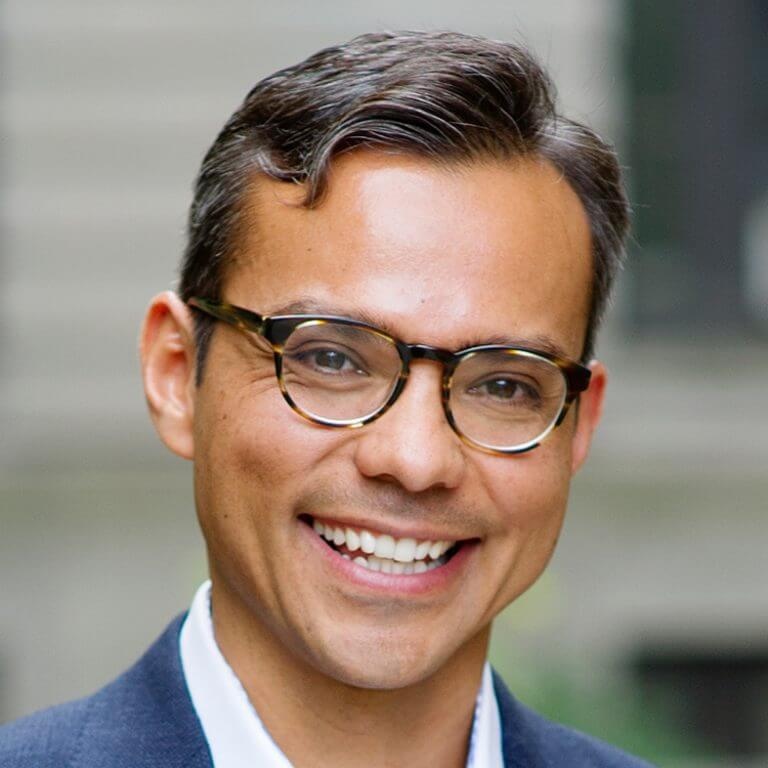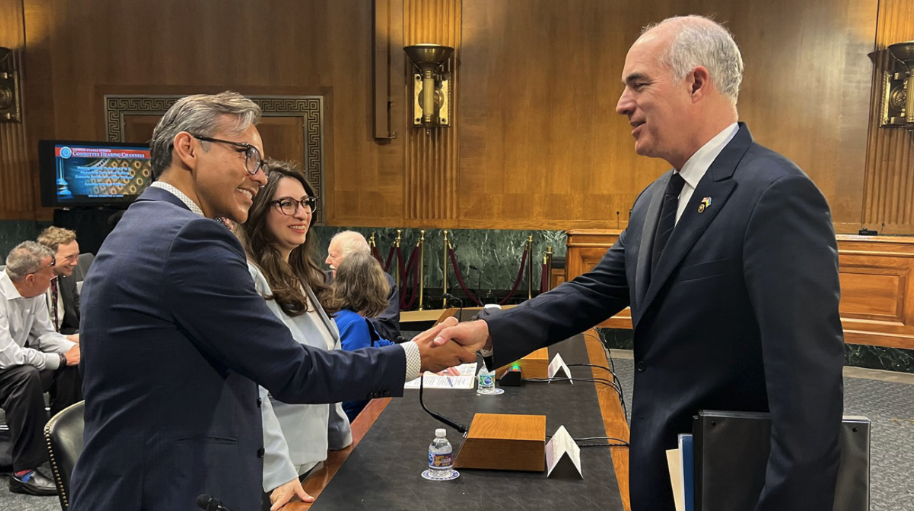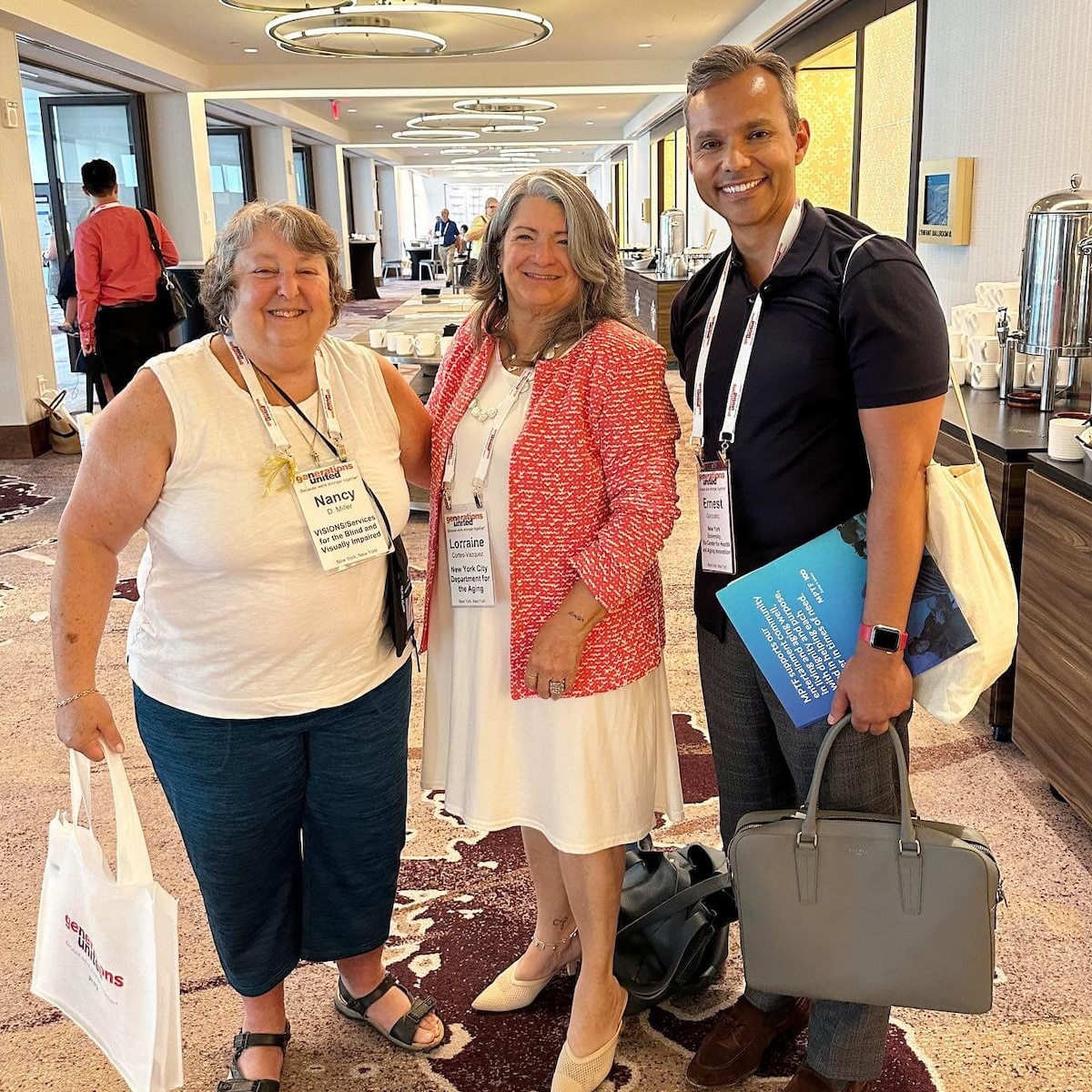
Faculty Spotlight
Ernest Gonzales
James Weldon Johnson Professor of Social Work
Health inequity, intergenerational relations, and social policy.
Two just got accepted at the same time: “Explicating Ageism in the Productive Aging Framework” and “Applying an Intersectional Lens to Intergenerational Programming and Research to Achieve an Equitable Society.”
I received the JWJ Award letter from the Provost while at a scientific conference in 2022, one of which I consider my academic home. It is not unusual that leading scientists present their latest and greatest findings at this annual conference, and I am consistently impressed with my peers’ conceptualization, methodological approach, and achievements. Yet all too often, my colleagues have a slide with the title “Limitations.” Common limitations are: the samples are usually all (100%) or majority (95%) White. And their implications often include language like this: “More research is needed to examine heterogeneity.”
The same day I received the Award letter, I also gave a Presidential address on how ageism, along with racism, sexism, ableism, and other -isms undermine health, employment, and that we, as researchers, need to be more inclusive in our research: theoretically and methodologically to move the needle on equity. And our social policies need to reflect the diversity and humanity in society. As a gerontological social worker, I advocate not just for age justice, but justice for inclusive research on aging. We all age. Yet not all of us are part of the scientific enterprise as principal investigators or subjects worthy of scholarly inquiry. We need to change that.
This message has been a constant beat of mine at venues such as the National Academies of Sciences, MIT, Stanford University, The World Bank, United Nations, and the U.S. Senate. We need to elevate our research with real world impact, as complicated as it may be, to ensure everyone is included.
Receiving the JWJ Award meant that my research was being seen by the leadership at NYU. Not too many universities recognize the value of my message. NYU does.

Dr. Gonzales shakes hands with Senator Bob Casey, Chairman of the United States Senate Special Committee on Aging
I LOVE teaching Theories and Issues in Aging. The students enrolled in this class are passionate about ensuring we don’t just live a long life but a long life filled with purpose, health, community, and opportunity. I encourage them to think of having a long life filled with love too. More often than not, students enter the class thinking about aging from a deficits perspective (e.g., death, dying, disease, disability, dependency, dementia) and they leave the class with an assets perspective (e.g., aging is an opportunity, longevity is a blessing, and older adults are an asset to society). I also challenge them to think of how to bring generations together to achieve win-win-win outcomes not just for older adults but for younger generations and society. This transformation in perspective elevates different questions for opportunity and it enables, even dares them, to think of the possibilities for practice, policy, research, and advocacy to ensure WE ALL have a purposeful and meaningful life.
Oh gosh! There are so many mentors. And as you know, once I start to name them, there is always the risk of forgetting someone (so please forgive me). Mentors come in various forms: some are formal, others informal. Some had a huge impact because of perspective, others more so because of consistency. But quickly, off the top of my head: my grandparents, uncles, mother (for sure), Drs. Nancy Morrow-Howell (Chair to my dissertation at WashU), Amanda Moore McBride, Michael Sherraden, Ed Spitznagel (statistician … had a very cluttered office that I loved to visit), Barbara Berkman, Ruth Dunkle, Jim Lubben, Janet Poppendick, Claus Muller, Steven Stainbrook (my husband) and in-laws, Luz Elena Nieto, Jean Haversick, Mrs. Ethridge (debate coach in high school), best friends in high school and throughout various schools. At one point or another, through high school to now, they have played an instrumental role that helped me navigate academia and life. Not an easy task, but a sheer joy.
Another tough question. I’m torn between Benjamin Franklin (did he really have as much fun in Paris as we think?), Thomas Jefferson (conflicting … intriguing), Plato (his cosmology is poetry), Audre Lorde (very clear communicator), John Dewey (let’s get practical, yet philosophical, yet practical), Frida Kahlo (vibrant imagination), Bernal Diaz del Castillo (conquistador with great insight on metaphysics and politics) and Martha Graham (I felt we have danced together). They have a unique perspective not just on humanity but on the order of things … the universe and where we fit.
Good question. If I could do what Ben Franklin did, then count me in. What a fascinating life and he gave so many great contributions to society. Innovation wins the day.

Receiving the JWJ Award meant that my research was being seen by the leadership at NYU